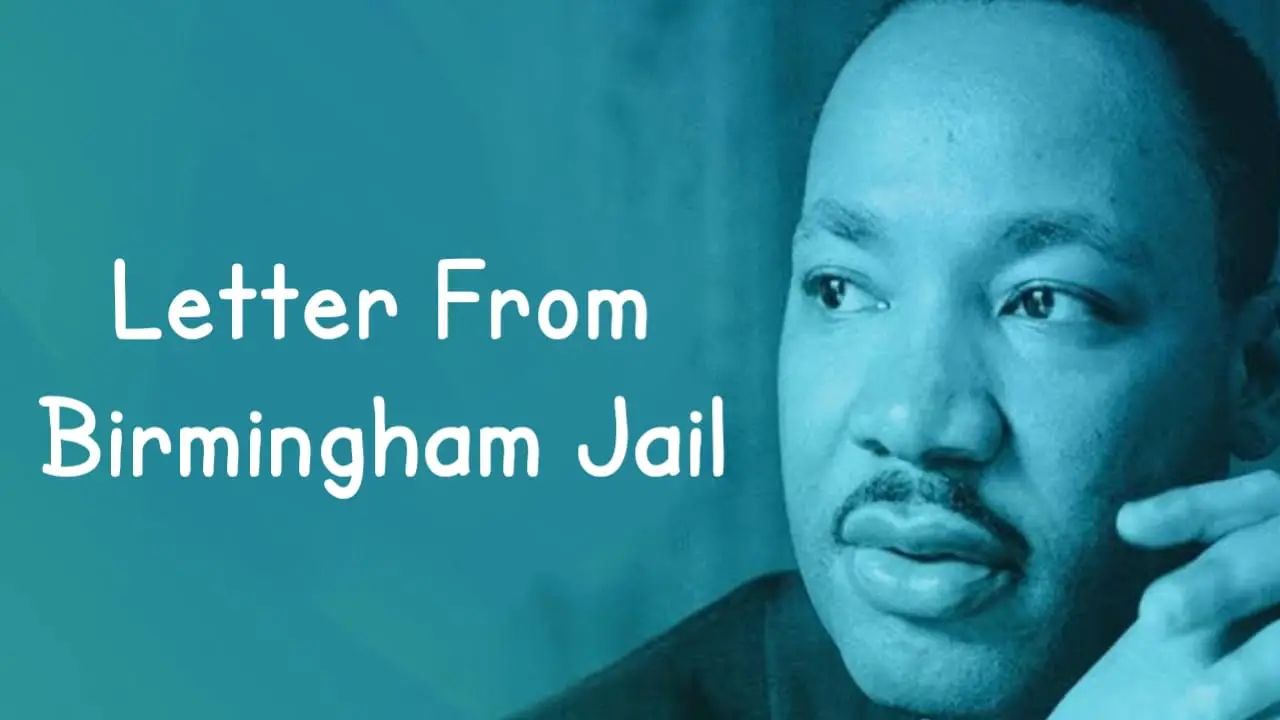Letter From Birmingham Jail PDF Free Download
In the annals of American history, one document stands as an eloquent testament to the struggle for civil rights and social justice. Martin Luther King Jr.’s “Letter from Birmingham Jail” is not just a historical artifact; it’s a powerful treatise that continues to resonate in contemporary discussions on equality and justice. In this article, we will delve into this seminal letter, exploring its historical context, key themes, and enduring relevance.

The Birmingham Campaign
To understand the significance of the letter, we must first examine the context in which it was written. The early 1960s were a tumultuous time for the civil rights movement in the United States. Racial segregation and discrimination were rampant, particularly in the Southern states. Birmingham, Alabama, was a hotbed of racial tension, and it was in this crucible that the Birmingham Campaign took place.
Martin Luther King Jr.’s Arrest
On April 12, 1963, Dr. Martin Luther King Jr. was arrested in Birmingham for leading nonviolent protests against segregation. He was placed in solitary confinement in Birmingham City Jail. It was during this period of confinement that he penned the now-famous letter in response to a statement by eight white clergymen who had criticized the civil rights demonstrations as “unwise and untimely.”
The Letter’s Structure
Dr. King’s letter is a masterclass in persuasive writing and rhetoric. It comprises several sections, each serving a distinct purpose. Let’s break down the structure of the letter:
I. Addressing the Clergymen’s Concerns
In the opening section, Dr. King addresses the concerns raised by the white clergymen. He acknowledges their role in the community and explains why he and his fellow activists couldn’t wait any longer for justice.
II. The Just vs. the Unjust Law
Dr. King introduces the concept of just and unjust laws, drawing on the works of St. Augustine and St. Thomas Aquinas. He argues that individuals have a moral obligation to resist unjust laws, drawing a clear distinction between legal and moral responsibility.
III. Nonviolent Resistance
This section outlines the principles of nonviolent resistance and its effectiveness as a tool for social change. Dr. King emphasizes the need to break unjust laws peacefully and endure the consequences with dignity.
Also Read This : I Survived The Shark Attacks Of 1916
IV. The Birmingham Campaign
Here, Dr. King elaborates on the Birmingham Campaign’s objectives and strategies, including the use of direct action, negotiation, and self-purification. He underscores the urgency of the civil rights struggle.
V. The Call for Unity
In this part, Dr. King urges the white moderates to join the cause of justice and equality. He emphasizes the interconnectedness of all people and the need to work together for a better future.
The Enduring Legacy
“Letter from Birmingham Jail” is not merely a historical artifact. Its enduring legacy lies in its universal themes of justice, equality, and the moral imperative to stand against injustice. Dr. King’s words continue to inspire generations of activists and advocates for social change.
Conclusion
In closing, Martin Luther King Jr.’s “Letter from Birmingham Jail” is a timeless document that reminds us of the enduring struggle for civil rights and social justice. Its eloquence, moral clarity, and call to action continue to resonate, serving as a beacon of hope in the ongoing quest for a more just and equitable society.
FAQs
Q: Why was Martin Luther King Jr. arrested in Birmingham?
A: Dr. King was arrested in Birmingham for leading nonviolent protests against racial segregation and discrimination.
Q: What is the central theme of “Letter from Birmingham Jail”?
A: The central theme of the letter is the moral obligation to resist unjust laws and the importance of nonviolent resistance in the pursuit of justice.
Q: How did the Birmingham Campaign contribute to the civil rights movement?
A: The Birmingham Campaign brought national attention to the issue of racial segregation and discrimination, leading to increased support for civil rights legislation.
Q: What impact did Dr. King’s letter have on the civil rights movement?
A: Dr. King’s letter galvanized support for the civil rights movement and strengthened the resolve of activists, leading to significant advances in civil rights legislation.
Click Here To Download PDF For Free








